Free Septic System Inspection ($99 VALUE)
WE DO NOT ONLY PUMP YOUR TANK - WE CLEAN IT! Free Septic System Inspection($99 VALUE) Free enzyme treatment! Financing Available
Free Septic System Inspection ($99 VALUE)
WE DO NOT ONLY PUMP YOUR TANK - WE CLEAN IT! Free Septic System Inspection($99 VALUE) Free enzyme treatment! Financing Available
As the fall season brings increased rainfall, protecting your drain field becomes essential for maintaining a properly functioning septic system. Excessive water can overwhelm your system, leading to backups, slow drainage, and potential damage to your drain field. Taking preventive measures can help you avoid costly repairs and ensure that your septic system operates efficiently.
In this blog post, our professionals from Septic Blue will discuss how you can protect your drain field from fall flooding and heavy rains while ensuring that your septic system remains in optimal condition.
Your septic system is designed to handle a specific amount of wastewater. When heavy rains saturate the ground, your drain field may struggle to properly absorb and filter wastewater, leading to standing water and potential system failures. When the soil becomes oversaturated, it can no longer effectively filter out contaminants, which may result in sewage backups inside your home. Regular septic service and proper maintenance are crucial to keeping your system prepared for wet conditions.
One of the best ways to prepare your septic system for fall is to schedule a septic pumping. A full septic tank can contribute to drain field problems, especially during heavy rains when the soil is already saturated. Pumping your tank before the rainy season ensures that your system has enough capacity to handle excess water and prevents overflow. Contacting a trusted septic company for routine maintenance can help you stay ahead of potential issues before they become serious problems.
Proper drainage is key to protecting your drain field from flooding. If rainwater accumulates around your septic system, it can reduce its efficiency and lead to long-term damage. Make sure that your property has adequate grading to divert water away from your drain field. Installing additional drainage solutions, such as French drains or dry wells, can help manage excess water. A professional septic firm can assess your landscape and recommend the best solutions for improving drainage and preventing flooding.
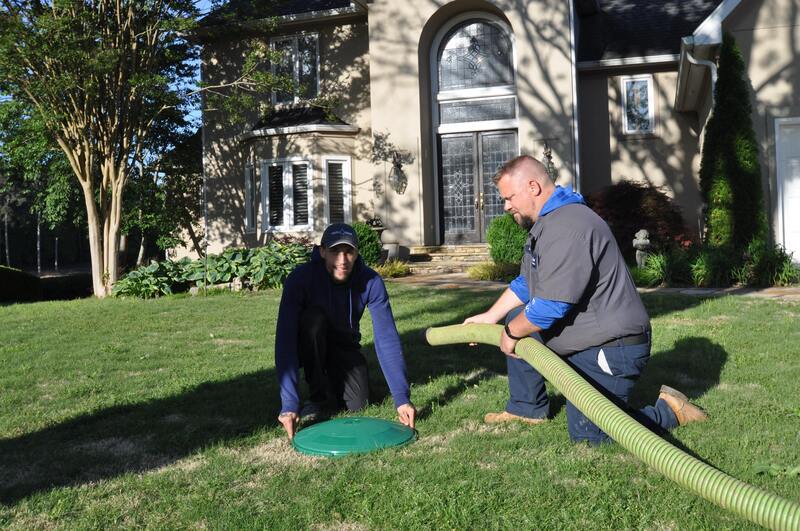
Septic tank pumping in Raleigh has never been so affordable and accessible thanks to the professionals at Septic Blue. We are…
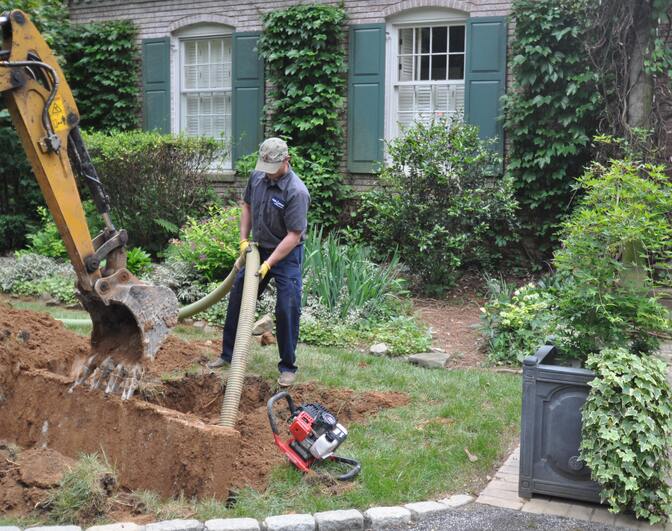
One quarter of Americans rely on septic tanks to process household waste. Most Septic Blue locations have septic tank experts who…
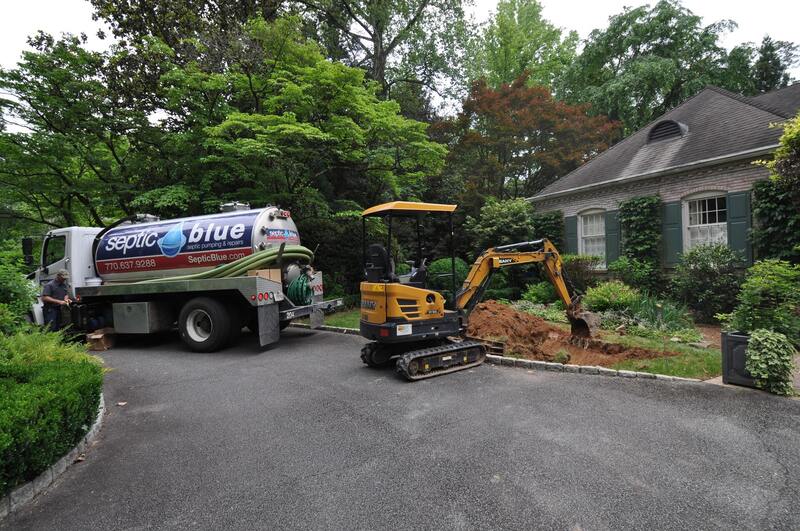
Call Septic Blue today for a second opinion. If you choose to go with Septic Blue, youll receive $250 off your…

If you are a homeowner or resident in Raleigh that is among the 20 percent of households in the U.S. with…
Professional Saptic Plumbing solutions for every need. Contact Us Today!
During the wet season, your drain field becomes more vulnerable to damage. Driving vehicles, heavy machinery, or placing large objects over the drain field can compact the soil, making it difficult for wastewater to be properly absorbed. Compacted soil leads to drainage issues and increases the likelihood of backups. Keeping the area clear and avoiding excessive weight on your drain field will help maintain its efficiency and longevity, making sure that your septic system continues to function properly.
When your property experiences heavy rainfall, reducing indoor water usage can help prevent your septic system from becoming overwhelmed. Activities such as doing laundry, running the dishwasher, and taking long showers can contribute to excessive water entering the septic tank. Spacing out water usage during and after heavy rain can help balance the load on your system, preventing unnecessary strain on your drain field. Being mindful of your water consumption can go a long way in maintaining the effectiveness of your septic system.
Routine septic cleaning and maintenance play a crucial role in preventing drain field problems. Over time, sludge and solids build up in your septic tank, reducing its ability to properly process wastewater. Regular septic cleaning ensures that your system functions efficiently, reducing the risk of backups and drain field failures. A professional septic service can inspect your system, identify potential issues, and perform necessary maintenance to keep it running smoothly. Preventive care is always more cost-effective than emergency repairs.
Are you in need of septic cleaning? Luckily, we at Septic Blue have dedicated workers ready at your service. Contact our representatives for more questions.
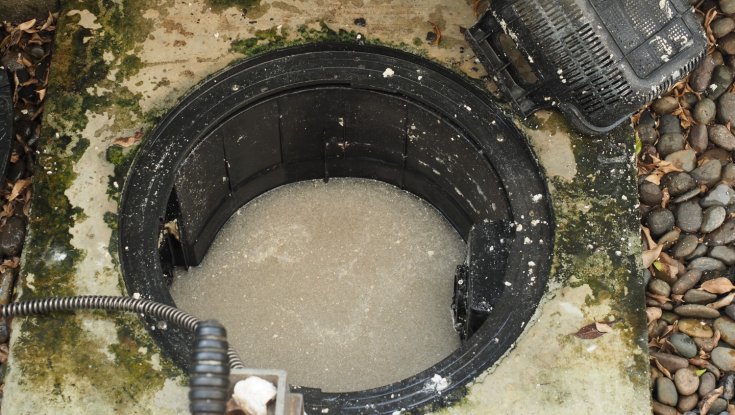
Grease traps play a critical role in managing waste in commercial kitchens, restaurants, and other food-service establishments. These systems are designed…
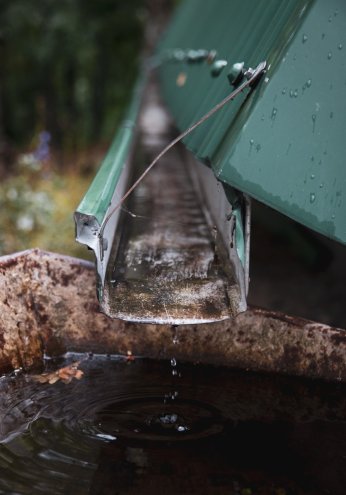
When you think of a septic system, the first things that probably come to mind are the septic tank and maybe…
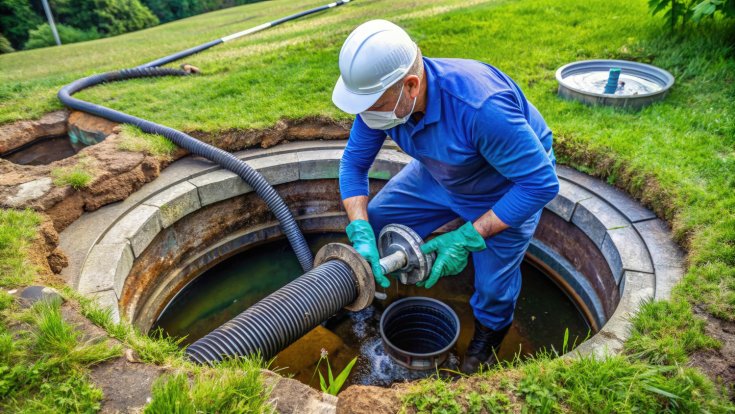
Do you have an on-site wastewater treatment system? How much do you know about your septic unit? As a homeowner, understanding…
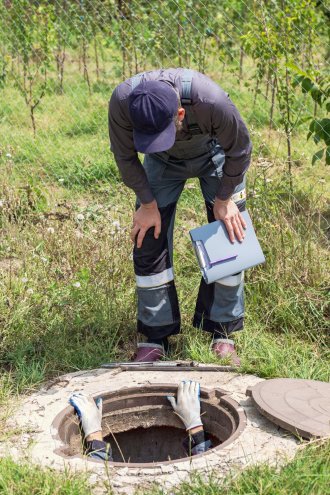
Ever hear a weird glug-glug sound coming from your toilet or drain? It's not just random noise. It could be your…